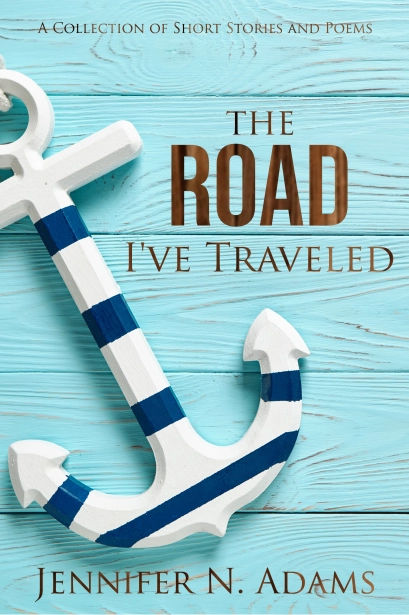June is a great month. It official marks summer break from school, as well as the first day of Summer. It is also my birth month, which is why I decided to publish The Road I’ve Traveled on my birthday.
The Road I’ve Traveled is now available for pre-order on Amazon. Its official release date will be on the 19th of June.
I absolutely love the cover. The anchor represents my time in the Navy. The color blue represents my love of the ocean, as well as autism awareness.

The Road I’ve Traveled is a compilation of poems and short stories Jennifer wrote during moments of her life where she felt the need to get it all out. She writes about being in the Navy during the tragedies of 9/11, having to deploy to New York where she and her shipmates stayed in New York’s harbor for three weeks, guarding the coastline in hopes of preventing any further attacks.
She writes about loss, love, heartbreak, family. You can see the fondness she had for her grandfather as she includes a heartfelt eulogy she had written moments after his passing.
She also writes about being a single mom, as well as a mom to a child who is on the autism spectrum. The journey they have endured together has been bumpy, but they continue to plow through life, learning about autism and sensory processing disorder as they go.
